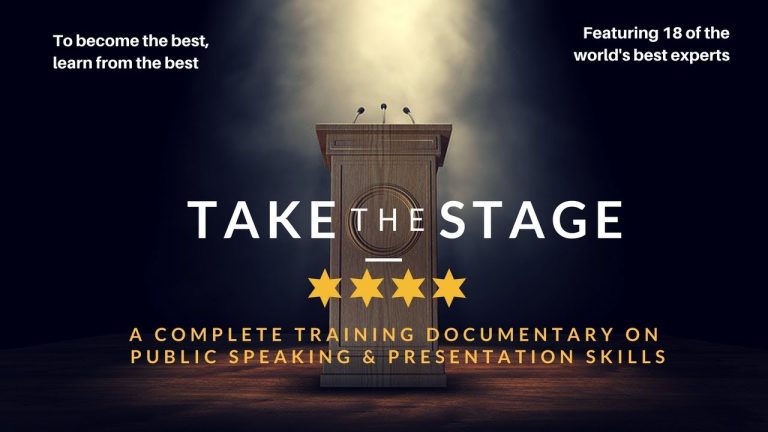What is the Impact of Storytelling?
The impact of storytelling is significant as it engages, connects, and influences emotions and behaviors. Storytelling has the power to captivate audiences, foster empathy, and convey complex ideas in a relatable and memorable way.
By creating a narrative that resonates with individuals, storytelling can inspire action and change perspectives. Stories have been used throughout history to educate, entertain, and inspire, shaping cultures and societies. In today’s digital age, storytelling continues to play a crucial role in marketing, branding, and communication strategies, allowing businesses and individuals to build meaningful connections and establish a compelling presence.
Whether it is through written or visual mediums, storytelling has the ability to leave a lasting impact on individuals and society as a whole.
Importance Of Storytelling In Today’S World
Storytelling plays a crucial role in today’s world, making a profound impact on our lives and society. It captivates audiences, evokes emotions, and effectively communicates messages, making it a powerful tool for connection, education, and entertainment. Whether in marketing, education, or personal narratives, storytelling allows us to engage, inspire, and create meaningful connections in an increasingly digital age.
In today’s digital age, storytelling plays a vital role in capturing and retaining the attention of audiences. It goes beyond a mere form of entertainment and holds immense value in various aspects of our lives. Let’s explore the importance of storytelling in the modern world:
Captivating Audiences In A Digital Age:
- Stories are an effective way to captivate audiences amidst the overwhelming sea of online content.
- Engaging narratives can hold the interest of readers and viewers, encouraging them to stay connected to the message being conveyed.
- Storytelling helps break through the noise and grab attention, making it an essential tool for businesses, marketers, and content creators.
Forming Emotional Connections With Individuals:
- Stories have the power to evoke emotions, allowing individuals to relate and connect on a deeper level.
- When people feel emotionally connected to a story, they are more likely to remember it and engage with the content.
- By tapping into emotions such as joy, empathy, or nostalgia, storytelling can leave a lasting impact on individuals, making it an effective means of communication.
Enhancing Communication And Engagement:
- Storytelling enhances communication by simplifying complex ideas and information into relatable narratives.
- It creates a sense of understanding and clarity, enabling individuals to grasp concepts more easily.
- When a story resonates with someone, it sparks curiosity and encourages engagement, prompting individuals to share, comment, or take action.
Storytelling in today’s world holds immense importance. It captivates audiences, forms emotional connections, and enhances communication and engagement. By incorporating storytelling into our content and communication strategies, we can effectively convey messages, connect with people, and make a lasting impact in a digitally saturated environment.
Psychological Impact Of Storytelling
Storytelling has a profound psychological impact, invoking emotions and creating connections. It has the power to engage, inspire, and influence individuals, shaping their beliefs and perspectives in a unique and memorable way.
Storytelling has a profound psychological impact on individuals, influencing their thoughts, emotions, and behaviors. Let’s explore how storytelling can stimulate imagination and creativity, shape beliefs and influence perspectives, and trigger empathy and understanding.
Stimulating Imagination And Creativity:
- Storytelling ignites the imagination, transporting readers to different worlds and scenarios.
- It allows individuals to envision and explore new possibilities, encouraging them to think creatively.
- By immersing readers in vivid narratives, storytelling sparks innovative thinking and fosters imaginative growth and development.
Shaping Beliefs And Influencing Perspectives:
- Stories have the power to shape beliefs and values, challenging existing notions and presenting alternative perspectives.
- Through relatable characters and compelling narratives, storytelling can alter the way individuals perceive the world around them.
- It prompts readers to question assumptions, broaden their horizons, and reconsider their own beliefs in light of different experiences.
Triggering Empathy And Understanding:
- Storytelling promotes empathy by enabling individuals to vicariously experience the lives and emotions of others.
- Through empathetic connections with characters, readers gain insight into diverse perspectives and develop a deeper understanding of human experiences.
- By confronting complex themes and challenges in stories, individuals cultivate compassion, tolerance, and a heightened ability to relate to others.
In today’s digitally connected world, the impact of storytelling is not limited to traditional mediums such as books and films. Social media platforms and interactive digital content offer new avenues for storytelling, extending its reach and influence. Whether it’s a captivating novel, a thought-provoking movie, or a compelling social media post, storytelling continues to shape our psychological landscape, shaping our thoughts, beliefs, and actions.
Cultural Significance Of Storytelling
Storytelling holds immense cultural significance as it has the power to impact and shape societies. Through storytelling, we preserve traditions, educate younger generations, and connect people across time and space. Stories have the ability to evoke emotions, challenge beliefs, and foster understanding, making storytelling an essential part of human experience.
Preserving history and passing down traditions:
- Storytelling has been a crucial tool for preserving history and passing down traditions from one generation to another.
- By sharing stories orally, ancient cultures have been able to preserve their history and cultural heritage more effectively.
- Storytelling allows communities to pass on knowledge, customs, and values to younger members, ensuring the continuation of their traditions.
- Through stories, important historical events, heroic figures, and cultural practices are kept alive, serving as a connection between the past and the present.
Promoting cultural diversity and inclusivity:
- Storytelling plays a vital role in promoting cultural diversity and inclusivity by showcasing different perspectives and experiences.
- By sharing stories from different cultures, we can appreciate and celebrate the richness and diversity of the human experience.
- Stories provide a platform for marginalized voices and underrepresented communities to be heard, fostering a more inclusive society.
- Listening to stories from diverse cultures enables us to develop empathy, broaden our understanding, and challenge stereotypes.
Fostering a sense of identity and belonging:
- Storytelling helps individuals and communities develop a sense of identity and belonging.
- By hearing stories that reflect their experiences, people can identify with characters and situations, strengthening their sense of self.
- Stories that depict the struggles and triumphs of a particular community can foster a shared sense of identity and unity.
- Through storytelling, individuals can find connection and belonging within their culture and heritage.
Storytelling has a significant cultural impact. It preserves history, promotes diversity and inclusivity, and fosters a sense of identity and belonging. Stories hold immense power in shaping and uniting societies, ensuring the preservation and celebration of our shared human experience.
So, let’s continue to weave the threads of stories to enrich and connect our world.

Credit: www.gpstrategies.com
Impact Of Storytelling In Business And Marketing
Storytelling has a significant impact on business and marketing strategies. It engages and connects with audiences, making brands more relatable and memorable. Through storytelling, businesses can effectively communicate their values, build trust, and inspire action from their customers.
In today’s competitive business landscape, storytelling has emerged as a powerful tool for businesses to connect with their audience on a deeper level. When used effectively, storytelling can have a significant impact on building brand identity, creating memorable narratives, and increasing consumer engagement and sales.
Let’s explore how storytelling can positively impact businesses in the world of marketing.
Building Brand Identity And Customer Loyalty:
- Storytelling enables businesses to humanize their brand, allowing customers to relate to their values, culture, and purpose.
- By sharing authentic stories, businesses can establish an emotional connection with their audience, fostering trust and loyalty.
- Through consistent storytelling, brands can differentiate themselves from competitors and reinforce their unique selling proposition.
- A well-crafted brand story can leave a lasting impression on customers, helping them to remember and identify with the brand.
Creating Memorable Narratives And Brand Stories:
- Storytelling provides businesses with a platform to convey their message in a compelling and memorable way.
- By crafting narratives that resonate with their target audience, businesses can effectively communicate their brand story and values.
- Memorable brand stories help businesses stand out and leave a lasting impact in the minds of consumers.
- Stories have the power to evoke emotions, which can lead to a stronger connection between the brand and its audience.
Increasing Consumer Engagement And Sales:
- Storytelling can captivate an audience, grabbing their attention and keeping them engaged with the brand’s message.
- Engaging narratives can stimulate conversations, encouraging customers to share their own stories and experiences.
- When customers feel connected to a brand through storytelling, they are more likely to become advocates, recommending the brand to others.
- Storytelling can boost sales by showcasing how a product or service can fulfill a customer’s needs or solve their problems.
Storytelling plays a crucial role in business and marketing by building brand identity, creating memorable narratives, and fostering consumer engagement and loyalty. By harnessing the power of storytelling, businesses can differentiate themselves, forge emotional connections, and drive sales. So, embrace the art of storytelling and unlock its potential for your business’s success.
Educational Benefits Of Storytelling
Storytelling has significant educational benefits as it engages listeners, enhances their understanding, and stimulates their imagination. With its impact on memory retention and emotional connection, storytelling provides a powerful tool for effective teaching and learning.
Storytelling is not just a form of entertainment; it also has numerous educational benefits. By integrating storytelling into educational settings, teachers can enhance learning and retention, develop critical thinking and problem-solving skills, and encourage active participation and collaboration.
Enhancing Learning And Retention:
- Storytelling captivates learners’ attention and makes the learning experience more engaging.
- It helps in understanding complex concepts by breaking them down into relatable narratives.
- By relating information to a story, learners are more likely to remember it for a longer duration.
Developing Critical Thinking And Problem-Solving Skills:
- Storytelling prompts learners to analyze situations, interpret character actions, and predict outcomes, fostering critical thinking skills.
- When confronted with challenges encountered by story characters, learners are encouraged to come up with creative solutions, fostering problem-solving skills.
- Storytelling encourages learners to think critically and develop their own opinions, helping them become more independent thinkers.
Encouraging Active Participation And Collaboration:
- Incorporating storytelling in the classroom encourages active participation as learners become active listeners and engage in the story’s plot.
- Learners can participate in story-related activities, such as retelling stories, acting out scenes, or creating their narratives, promoting active engagement and participation.
- Collaborative storytelling activities allow learners to work together, combining their ideas and perspectives to create a cohesive narrative.
Embracing storytelling in education can have a profound impact on learning outcomes. It creates an immersive learning environment that captures learners’ attention, facilitates critical thinking and problem-solving skills development, and fosters active participation and collaboration among students. By leveraging the power of storytelling, educators can unlock the full potential of their learners and provide them with a memorable and effective learning experience.
Impact Of Storytelling In Social Change
Storytelling has a profound impact in creating social change by engaging and captivating audiences. It has the power to inspire empathy, raise awareness, and mobilize communities towards shared goals. Through compelling narratives, storytelling ignites the spark that drives positive transformation.
Storytelling has the power to ignite social change and shape the world we live in. Through compelling narratives, stories have the ability to inspire action, raise awareness, foster empathy, and drive positive societal transformation. Here’s a closer look at the impact of storytelling in social change:
Inspiring Social Activism And Raising Awareness:
- Stories have the capacity to inspire individuals to take a stand and initiate social activism.
- By sharing authentic experiences, storytelling can generate empathy and encourage people to empathize with others.
- Stories can shed light on social issues that have been overlooked, underrepresented, or stigmatized.
- Through storytelling, people can gain insights into the struggles and triumphs of marginalized communities, promoting a greater understanding of their needs.
- Nonprofits, organizations, and individuals harness the power of storytelling to raise awareness about pressing social issues.
Facilitating Interpersonal Connections And Empathy:
- By sharing personal narratives, storytelling creates connections between individuals, transcending societal boundaries.
- Stories have the potential to bridge gaps and build empathy among people with different backgrounds and perspectives.
- When stories are told authentically, they allow individuals to relate to one another on a deeper level.
- The shared experience conveyed through storytelling encourages compassionate understanding and promotes unity.
- Through the cultivation of empathy, storytelling fosters a sense of collective responsibility towards social change.
Driving Positive Societal Transformation:
- Stories possess the power to spark conversations and challenge societal beliefs and norms.
- By presenting alternative viewpoints and narratives, storytelling encourages critical thinking and reshapes perspectives.
- Stories can inspire people to question existing systems and work towards creating more just and equitable societies.
- Narratives that emphasize resilience, courage, and social progress can serve as catalysts for positive change.
- Storytelling has the potential to mobilize communities, galvanizing them into action to create a brighter future.
Storytelling plays a crucial role in social change by inspiring social activism, facilitating empathy and connections, and driving positive societal transformation. Through the power of narratives, we have the ability to shape a more inclusive and compassionate world.
Utilizing Storytelling In Personal Growth And Development
Discover the profound impact of storytelling on personal growth and development. Through engaging narratives, individuals can gain valuable insights, unleash their creativity, and find inspiration to overcome challenges and pursue their goals. Harness the power of storytelling to unlock your full potential.
Storytelling has been a powerful tool for connecting, sharing, and inspiring throughout history. Its impact on personal growth and development is undeniable. Utilizing storytelling can help individuals connect with their personal experiences and emotions, share personal narratives for self-reflection and growth, and inspire others through their stories.
Connecting With Personal Experiences And Emotions
- Engaging with personal experiences: By incorporating storytelling into personal growth and development, individuals can tap into their own experiences and connect with them on a deeper level.
- Emotional connection: Storytelling allows individuals to explore and express their emotions, helping them gain a better understanding of themselves and their journey.
- Relating to others: Through storytelling, individuals can find common ground with others who have similar experiences or emotions, fostering empathy and connection.
Sharing Personal Narratives For Self-Reflection And Growth
- A source of self-reflection: Sharing personal narratives through storytelling provides an opportunity for individuals to reflect on their experiences, beliefs, and values, leading to personal growth and development.
- Gaining perspective: By sharing their own stories, individuals can gain insights from others’ perspectives, helping them broaden their worldview and challenge their own assumptions.
- Identifying patterns and themes: Through storytelling, individuals can identify patterns and themes in their own narratives, allowing them to recognize recurring themes in their lives and make informed choices for personal growth.
Inspiring Others Through Storytelling
- Sharing inspiration: Storytelling has the power to inspire others by sharing personal stories of triumph, resilience, and growth. Through storytelling, individuals can motivate and encourage others on their own personal journeys.
- Fostering connection: Through authentic storytelling, individuals can create meaningful connections with others who may resonate with their stories. This connection can motivate and inspire both the storyteller and the audience.
- Providing hope and encouragement: Storytelling allows individuals to share their challenges and how they overcame them, offering hope and encouragement to others facing similar obstacles.
Incorporating storytelling into personal growth and development can be a transformative and empowering experience. By connecting with personal experiences and emotions, sharing personal narratives for self-reflection and growth, and inspiring others through storytelling, individuals can unlock their full potential and make a positive impact on themselves and those around them.
Future Trends In Storytelling
Storytelling has a profound impact on shaping the future of communication. It captivates audiences, evokes emotions, and enables deeper connections. Through storytelling, we can inspire, educate, and empower, fostering a more empathetic and cohesive society.
Storytelling has always been an essential part of human communication, and as technology continues to advance, the ways in which we tell stories are rapidly evolving. The future of storytelling is full of exciting possibilities, as we explore new mediums, integrate technology, and immerse ourselves in virtual and augmented realities.
Let’s delve into some of the future trends that are shaping the world of storytelling.
Evolving Storytelling Mediums And Platforms:
- Influence of social media: Storytelling has found a new home on social media platforms, where bite-sized narratives, engaging visuals, and interactive elements captivate audiences. Social media stories have become popular, allowing brands and individuals to express their narratives in a more dynamic and engaging manner.
- Rise of audio storytelling: With the podcast boom, audio storytelling is experiencing a renaissance. Listeners crave rich narratives that transport them to different worlds, and podcasts provide the perfect platform for immersive storytelling experiences.
- Interactive storytelling: Traditional narratives are no longer limited to books or films. Interactive mediums like video games, interactive apps, and choose-your-own-adventure stories allow the audience to become active participants in the storytelling process. This enhances engagement and gives individuals a sense of agency in shaping the story’s outcome.
Integrating Technology For Immersive Storytelling Experiences:
- Virtual reality (VR): Through the use of VR headsets, storytelling can now transport audiences into entirely new realms. VR offers a sense of presence and immersion, enabling users to interact with and be a part of the story in unprecedented ways. This opens up vast opportunities for educational experiences, gaming, and even therapeutic storytelling.
- Augmented reality (AR): AR overlays digital elements onto the real world, providing a unique and interactive storytelling experience. From location-based AR games to immersive museum exhibits, AR blurs the line between the fictional and the real, creating engaging narratives that accompany users in their physical surroundings.
- 360-degree videos: With the ability to capture an entire scene, 360-degree videos offer a truly immersive storytelling experience. Audiences can navigate and explore the story’s environment in any direction, adding an extra layer of depth and engagement.
Adapting Storytelling For Virtual Reality And Augmented Reality:
- Enhanced immersion: Virtual reality and augmented reality technology present an opportunity for storytellers to fully immerse their audience in a narrative. Whether it’s by allowing users to step into the shoes of a character or by merging the virtual and physical worlds, VR and AR create a sense of presence that deepens emotional connections and memories.
- Multi-sensory experiences: Storytelling in VR and AR can engage multiple senses simultaneously. Through the integration of haptic feedback, spatial audio, and even scent, storytellers can further enhance the immersion and evoke powerful emotional responses from their audience.
- Non-linear narratives: Virtual reality and augmented reality enable non-linear storytelling, where users can explore the story’s universe at their own pace and in their preferred order. This frees creators from conventional linear structures and encourages more interactive and personalized narratives.
The future of storytelling holds endless possibilities, from evolving mediums and platforms to the integration of technology and the adaptation of narratives for virtual reality and augmented reality. As these trends continue to shape the storytelling landscape, we can expect even more captivating and immersive experiences that blur the boundaries between fiction and reality.
Conclusion And Final Thoughts
The impact of storytelling is far-reaching, influencing the emotions and perspectives of individuals. It captivates and engages, allowing for deeper connections and empathy, making it a powerful tool for communication and understanding. Storytelling has the ability to shape perceptions, inspire action, and leave a lasting impression on those who encounter it.
Storytelling has always held a powerful influence on human society, and its impact remains enduring through the ages. By weaving narratives, individuals and communities can connect, inspire, educate, and entertain. The art of storytelling permeates various aspects of life, making it a valuable tool for communication, personal growth, and professional development.
As we conclude our exploration of storytelling, let’s delve into the lasting impact it can have and the importance of embracing its potential in our daily lives.
Highlighting The Enduring Impact Of Storytelling:
- Stories have the ability to create emotional connections and resonate with people on a deeper level.
- Through engaging narratives, storytelling has the power to shape perceptions, inspire action, and influence behavior.
- The impact of storytelling extends beyond entertainment and can be harnessed to inform, educate, and raise awareness about important issues.
- Stories have a unique ability to bridge cultural and linguistic barriers, enabling the sharing of diverse experiences and fostering empathy.
- By tapping into the universal elements of human experiences, storytelling has the potential to transcend time and create a lasting legacy.
Encouraging The Exploration And Utilization Of Storytelling In Various Aspects Of Life:
- In education, storytelling can enhance learning by captivating students’ attention and making complex concepts more relatable.
- Storytelling can be instrumental in building cohesive communities by fostering a sense of belonging, shared experiences, and common values.
- In marketing and advertising, storytelling allows brands to create authentic connections with their audience, evoking emotions and establishing brand loyalty.
- As individuals, storytelling can help us reflect on our own experiences, gain self-awareness, and find personal meaning and purpose.
- Storytelling techniques can greatly benefit public speaking, leadership, and communication skills by effectively conveying ideas and capturing the audience’s attention.
The impact of storytelling is undeniable and far-reaching. It has the power to connect, inspire, and transform lives across various aspects of life. By embracing storytelling and recognizing its potential, we can harness its enduring impact and use it as a tool for personal and professional growth.
So, let us continue to explore, share, and celebrate the art of storytelling, allowing its magic to shape our narratives and create a lasting legacy.
Frequently Asked Questions For What Is The Impact Of Storytelling?
What Are The Impacts Of Story Telling?
Storytelling has significant impacts by engaging and captivating the audience, conveying messages effectively, and fostering empathy.
Why Is Storytelling So Impactful?
Storytelling is impactful because it captivates attention, creates emotional connections, and makes information more memorable.
What Are 3 Benefits Of Story Telling?
Storytelling has 3 benefits: engaging the audience, making information memorable, and creating emotional connections.
How Does Storytelling Impact Our Brains?
Storytelling activates multiple areas of our brain, including those associated with language processing, sensory experiences, and emotions. It helps us better understand and remember information by creating connections and stimulating our imagination. Additionally, storytelling releases chemicals like oxytocin, which enhances trust and empathy, fostering stronger connections with the audience.
Conclusion
Storytelling has a profound impact on how we perceive and understand information. It allows us to make emotional connections, engage with content, and remember it for longer periods. Through storytelling, individuals can convey complex messages in a captivating and relatable manner, sparking empathy and influencing behavior.
It helps build trust and credibility, making it an effective tool for businesses to connect with their audience. Moreover, storytelling has the power to inspire and motivate individuals, driving positive change in both personal and professional realms. From ancient times to the digital age, the art of storytelling has remained a timeless tradition, transcending barriers and shaping cultures.
As we recognize the immense impact of storytelling, it becomes increasingly crucial for content creators to harness its power in order to create meaningful and impactful experiences for their audience. So, embrace the power of storytelling and unlock a world of endless possibilities.


